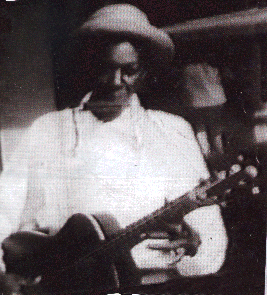


West End, Tortola
So, I’ve been reading Bob Dylan’s autobiography, Chronicles.
I don’t usually read autobiographies, or biographies for that matter. Don’t read People magazine. Hardly even watch Entertainment Tonight.
But Dylan was a huge influence on me. Senior year of college, I got mad one day because the administration at the College of Saint Teresa, my small, Catholic Midwestern college, insisted we all go to a convocation every month—and sign in. The penalty was demerits. Translated, that meant that 21 year old college seniors would be campused on a Saturday night. The speaker?
The Bishop. The same bishop giving the same talk that we had heard for the three previous years.
I went to the convocation obediently. The place was full. The passed the sign in sheet around. Clever, those nuns. The sheet had a slot for each of the nine convos, so it was obvious if someone forged your signature.
I just became enraged. I passed the card along to the next student, and left the auditorium.
Later, I posted a letter to the college president, Sister Camille, ( a graduate of the Sorbonne, evident every graduation when she wore the earmark ermine cape ) on the student bulletin board. That board was the college’s way of giving us a voice.
It was 1968. While Vietnam was raging, students at Berkeley and University of Wisconsin were rioting for more say in their curricula, the civil rights movement was far from complete, and women like Gloria Steinem were finally asking why they were all supposed to be nurses, teachers or social workers. About 30% of my college were nursing students, and spent two years in Rochester, Minnesota at Mayo Clinic, learning from the best.
I had seen people die, delivered babies, soothed post op patients with wicked cancers. It seemed pretty silly to be going to convocations like this one not because I chose them as part of enrichment. Seemed late in my college career to determine that I wouldn’t have the judgment or critical thinking skills to discern if the lecture was of benefit to me.
I wasn’t very political at CST. Spent a lot of senior year playing bridge, taking extra courses at the men’s college up the hill, and reading things like Vietnam by David Halberstam. And, OK, I spent some nights at the Steamboat Room bar at the Hotel Winona with my buddies.
The letter to Sr, Camille said pretty much all my thoughts about academic freedom, student rights,. I attached my demerit slip to the bottom of the letter and left for classes.
At the end of the day, I went back to the board. There were 50 demerit slips attached to my letter, the little 4x6 slips of paper snaking down the hallway. Oh, shit, I thought to myself. This isn’t going to be pretty.
The president’s office was windowed with a long, mahogany conference table. Sr. Camille, her slight frame was dwarfed by the huge table, was sitting at the far end, her hands folded gracefully on the tabletop. I sat down at the other end. This was more of a face-off than a meeting, I thought to myself.
“Mary, Mary, what have we done to make you so unhappy?”
“Well, for starters, there isn’t any, positively no, input by students about these convocations. The Bishop, with all due respect, has given essentially the same lecture for four years—even in the wake of the Vatican II when so much is new. It’s sort of insulting.”
“I see,” she said, looking down at her hands.
I thought for sure I was going to be expelled. And wondered how I would explain it to my mother, a Victorian woman who never quite understood why I couldn’t just let well enough alone. No, Mom, I wasn’t’ drinking too much or sneaking out of the dorm at night. I just protested a little…
“What would you like to see change,” she asked, staring straight at me.
“I’d like a convocation –a student convocation – that talks about what’s going on in this country—the war, civil rights, conscientious objectors like Bob Gilman who’ve been imprisoned, women’s rights for pete’s sake.”
“Go see the Dean and make the arrangements. There must be an agenda and some sort of script that I can see before. And, of course, the faculty will attend. No surprises.”
Four weeks later, we produced the first student convocation at the College of St. Teresa. A little history. The faculty, mostly nuns, sat on either side of the stage. It was the same set up as altars in the Middle Ages when the clerics would flank the priest, set apart from the common worshiper, Medieval was a perfect word for CST at that stage.
And the performance began with…. Yup, you guessed it: “The Times They Are A Changin’ “ sung by two girls from Chicago with big voices and plenty of passion. Sounds corny now. But at the time, I thought it was cutting edge. And, trust me, for the College of St. Teresa--it was.
Dylan, it turns out, didn’t want to be part of a protest movement, a spokesman for his generation, an icon. He just wanted to write songs and figure out his destiny.
“ I wonder now, whether all of us---me and everyone else—has been inscribed and marked from birth, given a sticker, some secret sign…that none of us can change anything.”
I don’t agree with a sticker philosophy totally. I’m big on choice. But how is it that Bob Dylan just happened to write music that resonated with an entire generation, framed out worries, gave us a moral compass. Surely, the influence of Woody Guthrie and his look at the world, what Dylan calls his “hepped up union meeting sermons” and Robert Johnson’s dark lyrics and soulful sound helped infused his work.
I’m just glad that 40 years later, the sound of his voice, and now the sound of his voice on paper—the book is as choppy as his lyrics and driven as his voice—can bring me back to a place and time that transformed my life, set the course, inspired me.
Sorry, Bob. I know that’s not what you wanted. But it’s a postmodern world. What we create and send out to the universe becomes shape-shifted in most unusual ways.
M.C.
No comments:
Post a Comment